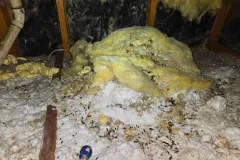German Cockroach Control
Our German cockroach exterminator service specializes in the effective removal of these resilient pests, ensuring a thorough and lasting solution. Protect your home with our expert treatment plans.
Spider Control
Our spider exterminator service eliminates spiders from your home and prevents future infestations. Rely on our safe and effective solutions to keep your space spider-free.
Wasp Removal
Our wasp removal service safely eliminates wasps and their nests, protecting your home and family from stings. Trust us for fast, effective, and professional wasp control.



